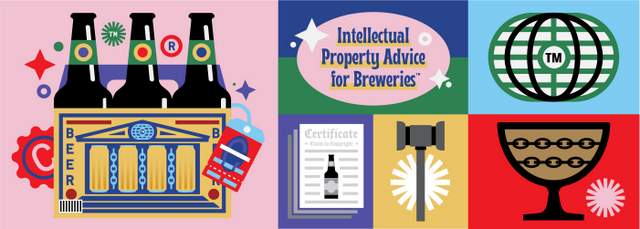
This column was provided by CODO Design, a food and beverage branding firm, and authors of Craft Beer, Rebranded. This book (and companion workbook) is a step-by-step guide to help you map out a successful strategy for rebranding your brewery. If you’d like to discuss your brewery’s branding, shoot Isaac an email anytime: [email protected]
Intellectual Property (IP) issues continue to be one of the most common branding mistakes we see breweries make. We’ve seen this manifest as advancing a key project without vetting a name, never trademarking your core brand elements in the first place, becoming aware of an IP issue only to ignore it, launching a brand extension into a new category (and assuming your name is good to go) or blatantly running afoul of someone’s existing trademark.
It’s worth mentioning that this was all easier when we started working with breweries back in 2010. There used to be a lot more elbow room and you could develop a trade markable brewery or beer name with very little effort. But now, with 8,300+ breweries online (plus the emergence of other beverage categories like seltzers, kombuchas, RTD cocktails and cold-brewed coffees), a solid, available name is harder to come by. This has ramped up over the last 5 years where it seems like nearly 90% of our brewery branding projects involve a heavy IP component.
Since we’re having these conversations constantly, we thought it would be a good opportunity to catch back up with Alesha Dominique and Craig Bradley of Mitchell Silberberg & Knupp (MSK) to discuss some of the recurring questions we receive from clients.
Note: this is a followup to our 2019 California Craft Brewers Conference presentation in San Diego called a Designer and a Lawyer Walk into a Brewery. Check that piece out for some valuable guidance, particularly if you’re planing on starting a brewery, launching a brand extension or are looking to expand your distribution footprint.
Alright, let’s dive into this.
If there’s a brewery with a beer name that isn’t trademarked, can I use that name (and federally trademark it) for my brewery’s corporate name?
Most likely not. A business can have trademark rights in a beer name even if they have not registered the name as a trademark. The question is not whether they have registered the mark, but rather are they using it to signify the source of a product (or service). With a few important caveats, the answer is almost certainly yes if the other brewery is using that mark as a beer name. Assuming you use that mark verbatim, even if it’s as your business name and not a beer name, the other brewery has grounds to argue that, because of that use, consumers will mistakenly believe that your breweries are affiliated. That argument can then take the form of a cease and desist letter, lawsuit, and/or roadblock to your attempt to register that mark.
What can I do if I want to open my brewery, but someone has parked the URL with no apparent intention of using it? Is there a way to force them to release it?
That depends on a few things. If you haven’t started using your mark at all, you may be stuck trying to buy the domain name from its current owner. The good news is that, since you’re not a big brand with deep pockets yet, there’s a good chance the domain name warehouser will not gouge you and you can scoop up the domain name relatively cheaply. However, the price will depend on a number of other factors.
If you have started using your mark, it’s possible you could force the warehouser to transfer the domain name to you. All domain name owners and registrars have to follow a uniform set of rules. As a trademark owner, you have the right under those rules to make a claim for transfer (or cancellation) of a domain name under certain circumstances, such as where someone is infringing your trademark in a warehoused domain name (e.g., buycheap[insert your mark here].com).
Similarly, I have trademarked my brewery name but am unable to get the social media usernames. Is there a legal precedent to obtain these or do I have to take that up with the specific platform?
Each social media platform (Facebook, Instagram, YouTube, Twitter, etc.) has a trademark policy to prevent infringement on their platform. So, the best and easiest way to secure a username with your mark is usually to follow that procedure, which typically entails a filling out a single-page form with your trademark information and complaint.
There are a few risks to keep in mind, though. If another business has the username you want, there may be a trademark conflict that will spill over outside social media. And going after the social media username may not be the best way to solve that conflict. Another consideration is what you will do if the platform disagrees that your rights entitle you to a specific username. Your dispute is ultimately with the username’s current owner, not the platform, and there are short and long-term costs and legal consequences to take into account before initiating such a dispute.
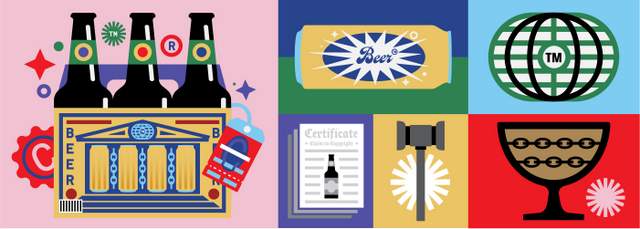
Can I use the same name as a brewery in another country here in the United States if the name is not federally trademarked in the U.S.?
Trademark rights are territorial—you generally only have rights where you have used or registered the mark. That being said, it takes only minimal use of a mark in the U.S. to create trademark rights in the U.S. So, it’s important to investigate the foreign brewery carefully, and perform a general “clearance” search for other potential conflicts, before adopting a mark.
Can you give us a run down on trade dress? Is that something our brewery should think about when trademarking our name and beer names?
Trade dress will not come into play when registering your business or beer name, but it is worth considering with respect to your bottles, cans, and any other product packaging. If those elements are “distinctive” you may own trademark rights in them, allowing you to prevent competitors from unfairly trading on your brand. Also, with a few important differences, trade dress can be registered with the Trademark Office similarly to business or brand names. The resulting registration would provide the same benefits as a “normal” trademark registration.
Can I trademark my flagship beer recipe? Or is that a trade secret or patent? I hear those words thrown around a lot.
Trademarks protect source-identifying symbols (names, packaging, etc.). That protection exists to prevent businesses from creating confusion amongst consumers. Imagine how confusing it would be if every ice cream store was called Dairy Queen! A recipe would be best protected under trade secret law. Trade secret law protects some of the most famous recipes, such as Coca-Cola and KFC’s fried chicken. There is no application process to create a protectable trade secret; rather, the main requirement is to simply keep it a secret. It’s best to consult with an attorney to make sure that’s done with the proper contracts and other measures.
We’re thinking about exporting our beer (or maybe opening a taproom in another country). Will our U.S. federal trademark protect us abroad?
It will not. But you may have trademark rights in certain foreign countries if you’re using your mark there, even if you have only registered your mark in the U.S. Before expanding abroad, it’s best to consult a trademark attorney to both make sure you’re mark is protected (it may make sense to register your mark in those countries), and assess the risk that an existing brewery in the foreign country has a conflicting mark with yours.
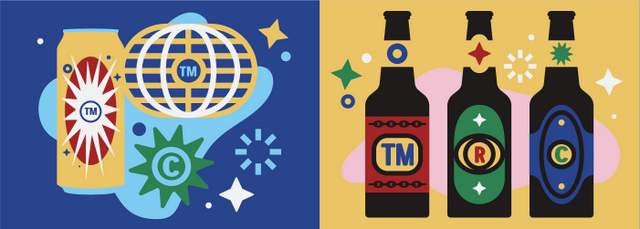
Is there any sort of worldwide trademark or do I have to trademark my name in each country in which I want to operate?
Unfortunately there is no worldwide trademark yet. However, there are ways to take advantage of a U.S. trademark application and use it as a basis for applications in just about any other country. There are also blocks of countries with a unified trademark system, like the European Union, that make foreign protection easier to manage.
We’re one of the largest breweries in the state and a lot of our (20+ year old) flagships have names that are tied to the state. It seems like once a month, there’s a new beer out in the market with a similarly-themed name. Is there a way we can police this issue without coming across as a bully?
Not all trademarks are created equally. If your mark includes descriptive or geographic terms, it is generally weaker and more difficult to enforce. That being said, if your brand has been around for over 20 years, you likely have grounds to argue that new beers with a similar name trading off your brand infringe your trademark rights. Enforcing your mark against these newcomers is important, and there are ways of reaching out without coming across as a bully. An experienced trademark attorney can help ensure the best level of friendliness to maximize success and minimize drama.
Craft Beer, Rebranded (and its companion workbook) are a step-by-step guide to help you map out a successful strategy for rebranding your brewery. Based on CODO Design‘s decade of brewery branding experience, this book will help you weigh your brand equity, develop your brand strategy and breathe new life into your brand. Whether your brewery is three years old or 30, Craft Beer, Rebranded is your guide to attracting new audiences, selling more beer and positioning your brand for the long haul. Read and buy it now at: www.craftbeerrebranded.com


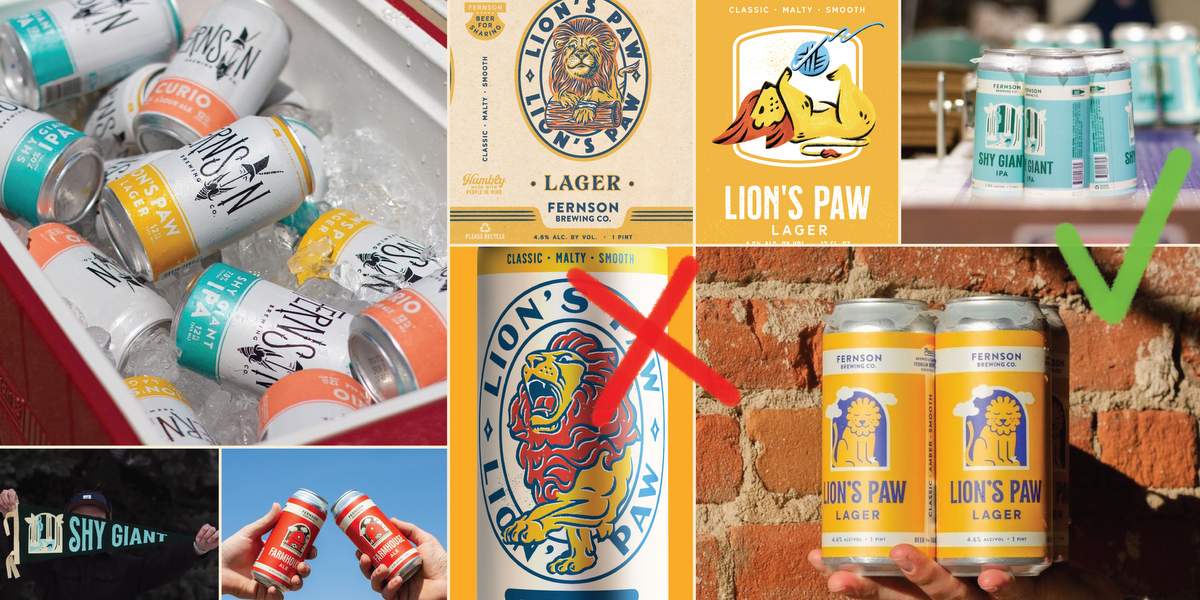
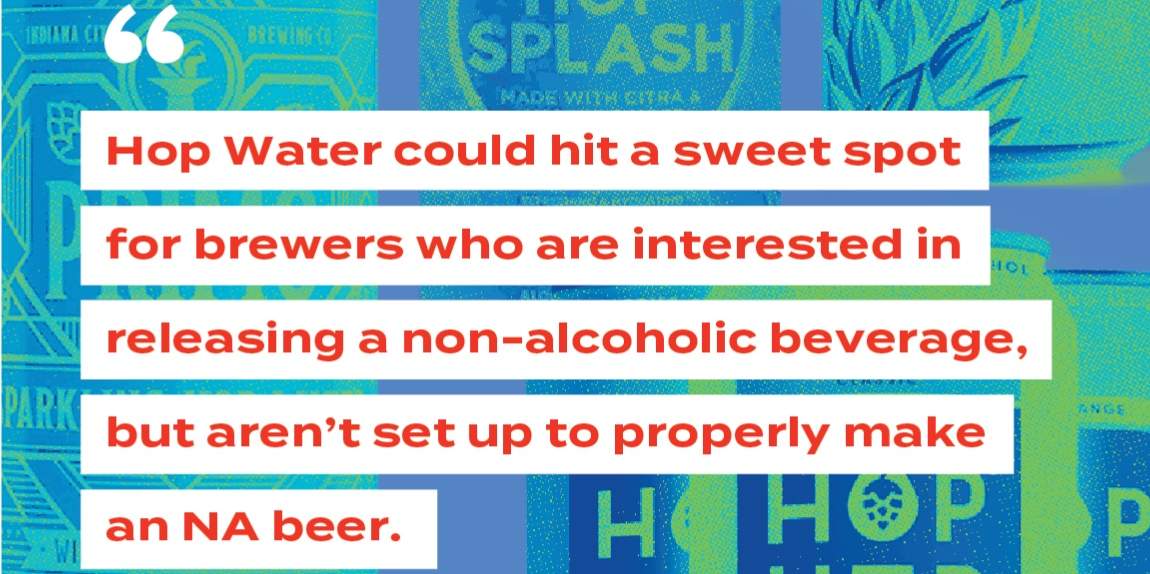
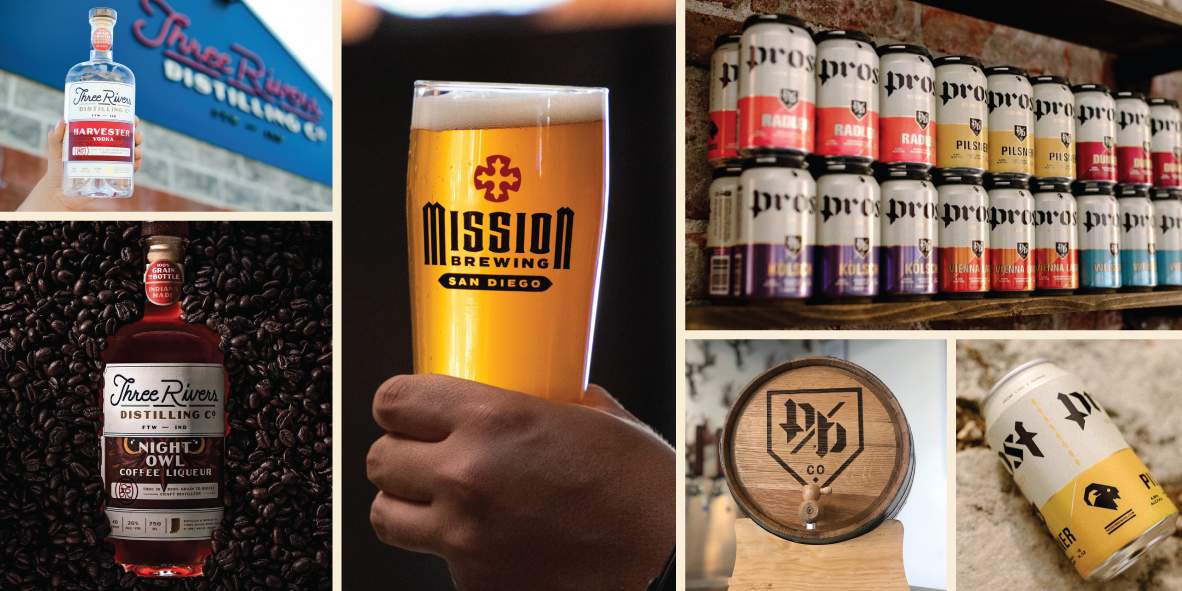
Leave a Reply
You must be logged in to post a comment.